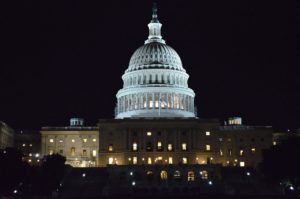If you could go back in history to kill Hitler, would you? The popular answer is, Yes. Of course. This makes you a hero, does it not? Humans love to speculate. We spend time in our own heads imagining scenarios where we do something important that changes the course of history. We ask the question, if you could go back in history and kill one person, who would it be?
Hitler.
But perhaps the better (bigger, more important) question is: Would that actually change anything? Or, does a single individual make the difference? Do individuals matter? Or would it have happened anyway? The romantic view is that of course individuals matter. The Third Reich would never have happened without Hitler. The atrocities of the Holocaust could never have happened without the singular Adolf Hitler.
But that’s not a realistic point of view. And it simply isn’t true.
The man is only a symbol. He represents something. A sentiment. A feeling. An idea. Killing the man does not kill the idea. The sentiment remains; the feelings only grow.
There are comparisons between U.S. President-Elect Donald Trump and Adolf Hitler. Beyond the increasingly-present Godwin’s Law (the longer an argument goes on, the more likely it is that comparisons to Hitler will be made), there has been serious speculation into the similarities between the two.
Is the point then to kill the situation that allowed Hitler to arise? And if history is repeating itself, what does that mean for today? We then also cannot blame Donald Trump for creating the sentiments that got him elected.
Comparing Hitler to Trump (and Other U.S. Fascists)
Are the comparisons justified? There are certainly parallels, beyond railing against disagreeing politics, or right vs. left.
One of the initial praises for Hitler was that he “told it like it is.” He was seen as a loud, blustering figure, but was praised for his confidence and his unconcern for saying what many people were too scared to say.
“…Hitler was seen as a clownish figure who was disliked by the country’s conservative establishment and who was never able to crack 40 percent of the vote. But even though most Germans rejected him, he was a skilled orator and effective populist demagogue who turned out to have a larger mass following than his country’s conservative establishment.”
The stifling of free speech and limiting newspapers and the media access also comes straight from Hitler’s playbook, and the “Muslim registry” proposed by Trump, the casual reference to internment camps and platform of fear-mongering and isolationism are perhaps most telling. Even the “Make American Great Again” slogan is derivative of a Hitler sentiment, cited in the February 24, 1940 edition of the St. Louis Star and Times:
And in this January 4, 1934 edition of the Green Bay Press-Gazette:
The rhetoric is scary. But it’s the commitment to execution that lends itself to the parallel. There were those willing to give Trump a chance; he has a history as left-leaning New York Democrat. But the subsequent appointment of individuals who proudly raise the banner of populism and nationalism, men like Steve Bannon and Jeff Sessions, and men who believe homosexuality is a societal problem like Mike Pence, show that his campaign was not just a show to get elected. They justify the comparison.
The State of Society
It’s no secret that Hitler would never have risen to power had things been different in Germany at the time, just as Donald Trump would not have been elected under difference circumstances in the United States.
Let’s take first a brief look at Germany in the early 1930’s. Still reeling from WWI, struggling to pay reparations, and governed by a shaky Democracy that was doing little by way of strong governing (leaders were given only a short time in power), Germany’s top brass at the time thought it the best way to make Hitler go away was simply by letting the whole spectacle run its course.
(Similar to the rise of the Trump campaign?)
True, the U.S. today looks nothing like the Weimar Republic. The U.S. has enjoyed uninterrupted Democracy for over 200 years. We are still technically the only true superpower in the world. Our economy is fairly stable.
But just as Hitler (initially) played on nostalgia for the past (a time of Emperors and German might) so did Donald Trump, initially, and now a growing number of politicians who have followed, played on many American’s longing for the past.
(Read more: Bringing the Country Together)
Humans are fragile creatures. We commonly derive our identities from place. Just as Germany was down in 1933, so do many people see the U.S. is today. Just as people felt they had reason to fear, blame, attack another culture for the state of society (or the state of their situation) in 1930’s Germany, so they do today for a perceived rise in terrorism and an unfounded fear of globalism.
It must be someone else’s fault.
Mexicans, Muslims, those on welfare (and all Others white and conservative politicians have pointed a finger at ) are the Jews (and communists, homosexuals, gypsies…) of 1930’s Germany. They are blamed for the unhappiness and fear of the “average” citizen. They are the scapegoat that helped people turn to a man they think will save them.
Make ______ Great Again!
There is an increasing rise in extreme right wing ideologies across the world: Nigel Farage in Britain (godfather of Brexit), Geert Wilders in Holland, Marine Le Pen in France, Jair Bolsanaro in Brazil, Victor Orban… to accompany the Marjorie Taylor Greene, Ron DeSantis, Greg Abbot types in the United States, coupled, not coincidentally, with the rise in hate crimes and racism, the anti-LGBTQ+ and specifically ant-Trans rhetoric and legislation, the push push for more cops even as the number of murders committed by them continues to increase, and the erroneous notion that things will somehow improve by looking backward (into the past) instead of forward (into the future).
We must understand how the world has once again returned to a state of fear, and why such a large group of people is turning to these views.
Killing Hitler
Ignore the parallels of history. Forget about the potential benefits of certain individuals no longer being in power. Put aside personal feelings. If we’re still talking about killing Hitler, as our freedoms are put in jeopardy, as hate crimes rise, as well allow a blustering figurehead to limit, to disrespect, to disrupt the lives of our friends and neighbors, then we haven’t learned anything from the past.
It is not solely about the individual – the focus cannot be on just one person. The person simply represents a sentiment that far too many others adhere to, an ideology that far too many people support.
The disillusionment with U.S. politics today is often blamed not only for Trump’s victory, but also for voter apathy. People who “let it happen” by simply sitting out.
The view of killing Hitler in order to save the six million(+) people killed in concentration camps and the 70 million (+) killed in WWII might noble. It might come from a good place. But it is patently false and, simply, wrong. Just as the idea that Donald Trump created his supporters, and if he didn’t exist those xenophobic ideologies wouldn’t exist, is also wrong.
We have an opportunity to learn from the past. We have the benefit of history. Don’t kill Hitler. Do something today instead. Something about this situation.
“I’m not going to kill the man, but rather what he stands for.”
Fight xenophobia, sexism, and isolationism. Fight against Muslims registries and other forms of bigotry. Be here, now to help prevent history from becoming something we regret.
Because killing the man does not kill the idea.
Donald Trump’s similarities to the most hated man in modern history have given rise to hate crimes and legitimized extremist groups that once remained at the fringe of society. It isn’t enough to speculate. If in 80 years people are talking about going back in time to kill United States politicians of today, we will be in a very sorry state indeed.








Comments